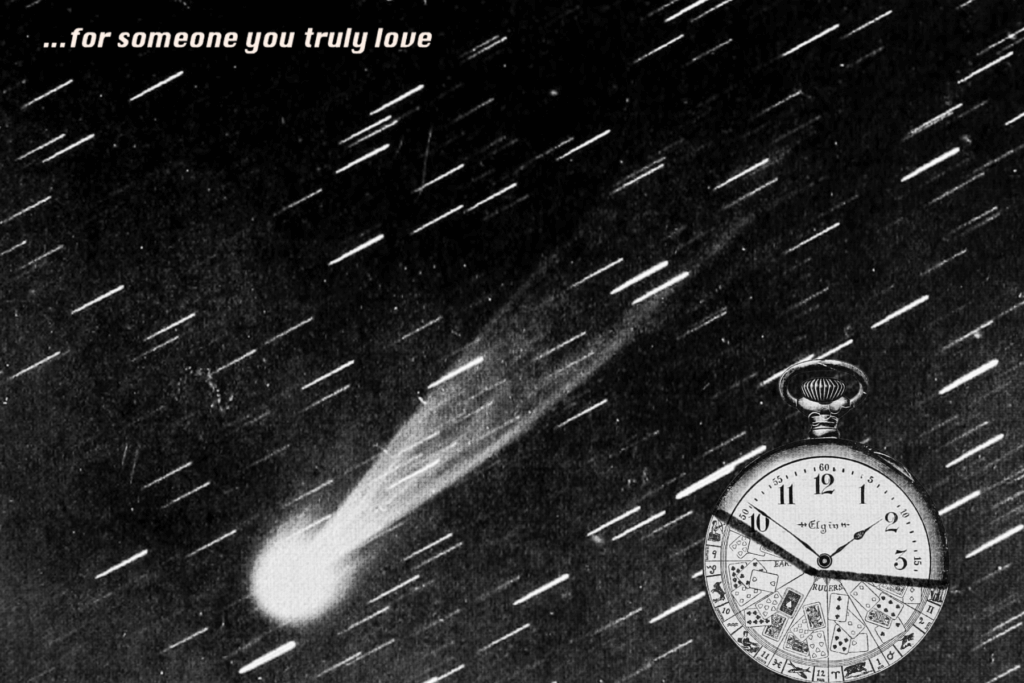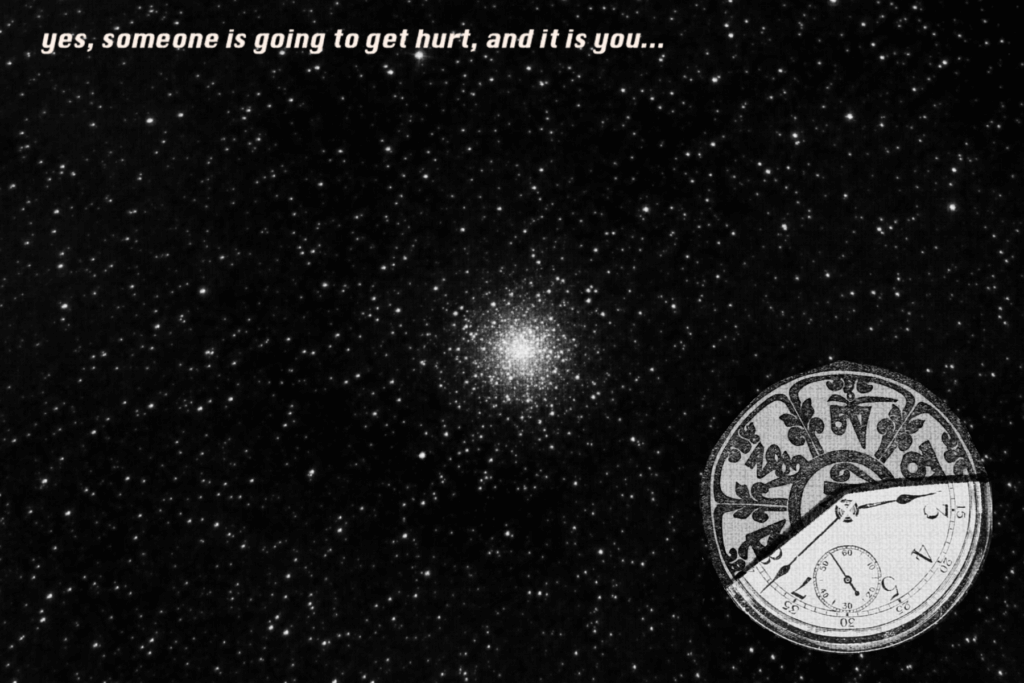This essay is an abridged version of a larger piece, with major sections of biographical narrative removed for ethical reasons. I recommend listening to Anjunabeats Volume 11 while reading, perhaps putting The Dark on repeat…
You are reading a novel, and the protagonist is on the verge of making a choice. You can see they are ignorant of what is happening, you can see they shouldn’t make the choice, you can see they are going to do it anyway, you can see they are going to suffer tremendously—you know it to be a mistake—you want to scream at the book, “NOOOO, DON’T DO IT,” you want to put your hands inside the page and shake them by the shoulders and stop them from making the choice, you want to throw the book at the wall with frustration, knowing it is a physical object and that it is impossible to help the ink-stained noun whose name is printed within again and again from breaking the heart you have opened up to their story; their fate is sealed and already printed on the page.
“This world is only going to break your heart”
He first started noticing that time was strange in high school, when he began having precognitive dreams. It happened so frequently in such a short period of time that, even though he didn’t have any framework for understanding it, even though he didn’t have anyone else in his life who spoke to him about these kinds of phenomena, he simply understood and accepted it to be the case—that we could sometimes dream about the future, and have it turn out the way we dreamed.

The dreams were, in retrospect and even at the time, banal. They were simple, straightforward. Seeing that he would have a conversation with someone. Someone saying something particular, or making a specific gesture.
But despite their banality, the very existence of these dreams, their indisputability in his own experience, suggested to him how strange things were, how strange his mind and time and the universe itself were—that things were not as it seemed, not as he’d been told.
“What a wicked thing to do
To make me dream of you…”
Several years into meditating, he began to notice an unusual phenomenon. In waking life, he would suddenly sense that someone was about to walk into a room, or say something in particular—or that a door would open, or a glass would break, or that someone would text him on the phone. In other words, he would start to be able to tell the future by about six or ten seconds.
It was, as far as he could tell, sporadic. It wasn’t as if he could always tell the future, or as if he could do so on command. And it wasn’t as if it were six or ten years, it was on the order of seconds, occasionally minutes. Above all, it wasn’t ever anything particularly important. And yet, there it was, again and again, often on a daily basis, such that it became completely ordinary to him—knowing that he suddenly had this strange, unasked for ability, to tell the future by six or ten seconds. It had no obvious useful purpose, as far as he could tell—save for another existence proof that time was strange, stranger than he’d ever thought or been told or as yet understood.
“Hey now / Letters burning by my bed for you
Hey now / I can feel my instincts here for you
Hey now / By my bed for you”
…All of that swirled together into a very specific negative thought, a specific reading that he never shared; he repressed the words so consistently and fully that even now he can’t fully remember them.
The intensity of the thought surprised him. He wasn’t used to thinking such judgmental thoughts, to hearing them arise in his mind. It really wasn’t an ordinary occurrence.
…In time, he realized that underneath the words, and their intensity, was a felt sense of friction, dissonance, danger, distrust…
…He found solace in the aux, the smoky fog of the machine factory and the portside, the determined swell of the rhythm, her voice a throaty whisper, beyond feminine and masculine, the open-hearted grief and fierce rage of everyone whose heart has ever been broken, the love and the anguish, the dedication and the abandonment, shouting: I will scream everything I feel into your face, I will honor my heart with all of my life force, there’s no going back now, let me dance myself forward with each motion of every limb beating…
“You can go any place, no matter how low
I’m coming with you, I’m not afraid of the dark”
He’d always enjoyed the genre, but that summer he fell in love with EDM. The tracks were evocative of romantic meanings he slotted into his apophenic headcanon, but also ripe soundscapes that moved his heart and his hips to dance.
…Out of compassion the universe brought him comfort in the form of a friend who quenched his thirst and replenished his empty well of sounds. He was delighted to find that there were piles and piles and albums and albums and even labels upon labels of music for him to listen to. He dove in, and listened to every single Anjunabeats Volume in order, multiple passes per album, noting which tracks he found he really liked and marking them with a heart.
The beauty of these albums, he found, was that they were mixed, each track weaved seamlessly into the next, a concert of two or three hours without a single interruption or jarring transition.
He surely listened to Anjunabeats Volume 11 a hundred times that summer. In the beginning, the sounds were entrancing, sweet, a welcome melody that swung his hips. Certain tracks and lyrics and even sounds assembled themselves into a whirlwind configuration of significance.
One evening, he felt a sudden sense of foreboding. It came on thick, dark, heavy, like a storm cloud but inside of his heart. “Someone is going to get hurt here,” he thought to himself.
“I never dreamed that I’d meet somebody like you
I never dreamed that I’d lose somebody like you”
He had joined a sangha, a small community. Originally, they formed to meet about the talks of Rob Burbea. Each week, they would listen to one or two talks, and gather to discuss them, their practice, and what was happening in their lives.
Gradually, they grew closer, and the focus broadened from Burbea in particular to include a wider understanding of Dharma—not just Buddhism, or Burbea’s Soulmaking Dharma, but also imaginal practice, and even magick.
He had been afraid of magick previously, but slowly, they introduced him to it. They read Wachter’s Six Ways and Weaving Fate, and time began to unwind itself from its linear simplicity and unfold into its nonlinear complexity and majesty. Nolan’s Interstellar and Tenet, previously merely riveting tales, became intuition pumps, cinematographic textbooks, for developing new sensibilities around time. And he began to practice.
At night, he developed a routine. He would lie down a little while before he was ready to sleep. The book said to enter a trance state and he figured that was more or less equivalent to the Buddhist jhanas. He would enter jhana, usually first and second, and bathe himself in the quiet bliss of absorption. Water running down the consciousness, toweling off the dirt of the day and leaving him fresh and pure and clean, pristine, ready.
Then he would turn his mind towards the past or the future, depending on his inclination that night, it turned out they were isomorphic anyway. Leaning pastwards, he would find a memory and speak to his past self, whispering sweet and loving reassurances and helpful advice into his ear—time mettā—or simply imagine it differently, watching a different choice made, a different scene unfolding, alternate histories.
Or he would wind himself forwards, calling forth specific outcomes, summoning clear-sighted depictions of fates hoped and prayed for, the best possible timelines for himself and all beings, daring to paint in stark lines and vivid detail all that his heart longed for, feeling into that future as if it were a certain destiny.
One morning he woke up and he couldn’t remember what it was he’d worked on the night before. His memory was excellent, a fine tuned instrument that could recall exact words or phrases in conversation or the body language someone had used to express themselves or exactly where he’d placed his coffee mug or which day he’d had a specific exchange with an old friend, it was aberrant that it would have failed him like that. He concluded that he had simply altered his timeline so thoroughly that he had expunged any trace of the altered past.
Gradually, he began to recognize the flavor and smell and feel of those specific memories—they all had a sense of the mysterious, the unknown, the universe breaking the fourth wall to convey a message to him. But until that point it hadn’t been clear to him, he hadn’t known that this was even possible, no one had told him about this—so the message was noisy, confused, messy, warped and warbled.
But all that changes when you know that this is possible. If a message comes through and you recognize it for what it is, the cleartext comes through ungarbled, noise becomes signal.
Importantly, you can reach forward in time and ask for guidance. You can reach out into the darkness, a hand groping into the pneumatic tube, and lo and behold, a message is there, loud and clear, if only you reach for it.
Each reaching out, each reaching forwards—each pass of the turnstile and flank of the pincer—requires not only the deep conviction that such a thing is possible, but also a promise to go backwards and send the message received.
“You and I are one and the same and I know
I’m setting you free when I’m breaking your heart
I want you to feel it”
If you listen to songs over and over again, on repeat, they begin to blur with your experience, with your hours and days, with the places you go and the circumstances of your life. A sound becomes a place, a lyric becomes a situation or a story, your life becomes music.
Played straight, you can use this skill to your advantage. You can intentionally play certain music in certain places or in certain chapters of your life. The music can bring your life certain qualities. Moreover, you can transport yourself back as if by portal to specific places and times, specific moments, with specific songs. Depending on the chapter and the music, this can take you back to heaven, or back to hell.
Over time, as the months went on, Anjunabeats Volume 11 began to sound different. It became clear to him that there was a certain mood or set of themes or even a plot to be found between the lines, as if he’d found the EDM equivalent of a rock opera unannounced within the vinyl sleeve. He saw how melancholy it was, how many darknesses were prefigured, how many wounds were whispered of.
That night, he knew it was time, he had to send the message back. He set in to do the time magick.

The price he paid to learn just a little of time’s ways was heartbreak, his heart had to be shattered to write these words, these words he writes, pacing feverishly under the summer night storm winds at the lightning storm shipyard sky, empty parking lot, wind wrapping his body as his thumbs pulse fiercely into the phone’s keyboard.
The final synthesis, her final love message, all the love in her voice…She says it with such finality and then the rhythm carries them forward so fast, the swell and pulse and then it shatters, the beat breaks, you can hear the speakers bursting at the seams to carry your hips forward at pace, somehow you have to keep walking down the road of life despite the hole in your heart, somehow her love is still there if he opens himself to listen for it, she wants him to feel it, the darkness of its end, the love that remains even then, will he let himself…
What would you do, if you really knew, deep in your bones, that you could change your past or steer your future?
Thank you to Sasha Chapin for suggesting the prompt for this piece, to Taalumot for his encouragement and detailed editorial and ethical feedback on this piece, and to my friends who read the full, unabridged version of this piece and held my heart in its darkness.



